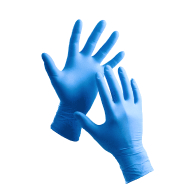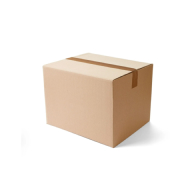Sänger Neotril Disposable Gloves with Special Neoprene Composite Material, Best All-round Protection
Sänger GmbH
visit storeProduct description
Powder-free
Colour : Purple
Thickness : 0.16 mm
Surface structure : Roughened
Describes the surface texture of the fingertip area, affecting grip strength and tactile sensitivity during use.
Measures how far the glove extends up the wrist and forearm, determining the level of coverage and protection provided during use.
The visual appearance of the glove material, ranging from basic colors to specialized options for different professional and aesthetic preferences.
The texture of the glove exterior, affecting grip strength and handling capability for different tasks and working conditions.
Protects sensitive surfaces from silicone contamination, ensuring product integrity and quality.
Your go-to gloves for diverse tasks, offering reliable protection and convenience across many applications.
Complete finger coverage ensures full protection and hygiene for your hands, maintaining dexterity for all tasks.
- Chemical Resistance
- Food Service
- Slip Resistant
- Antimicrobial Protection
- Hand Protection
Request a free sample
Test first and buy later. Visit any product page to request your free sample.
Standards and labels
Test results
General Requirements GuideEN ISO 21420:2020 is a standard that outlines general requirements and guidelines for protective gloves, aiming to ensure their quality, performance, and suitability for various applications. When a product meets the requirements outlined in the General Requirements section of EN ISO 21420:2020, it signifies that the gloves comply with fundamental quality and performance criteria, including factors such as size, fit, ergonomics, and dexterity. The practical implications of this compliance are significant, as it assures users of the gloves' basic functionality and suitability for general hand protection purposes across a range of industries and applications. The test method involves evaluating various aspects of the gloves, including dimensions, construction, materials, and labeling, to ensure conformity with the specified requirements. Compliance with these general requirements enhances user confidence in the protective gloves' reliability and effectiveness, promoting workplace safety and facilitating compliance with regulatory standards.
EN ISO 374-1:2016 is a standard that defines the performance requirements for gloves that protect against chemicals and microorganisms. The standard specifies the design, materials, and testing requirements for gloves to protect against chemicals and microorganisms. Possible test results include measurements of the gloves' permeation resistance, degradation, and penetration. It also includes the safety and functionality requirements for gloves.
Test results
Specified Requirements Type BEN 374-5:2016 is a European standard for gloves that protect against microorganisms, specifically gloves that are used for medical and dental procedures. It sets rules for how the gloves should protect against microorganisms and how to test if they meet the standards. Gloves that pass the tests can have a label that says they meet the standard. The test results can be pass or fail for each test that checks the gloves resistance to microorganisms.
Test results
Micro-organisms VirusEN 374-5:2016 is a standard that outlines the requirements and testing methods for protective gloves designed to protect against viruses. The designation 'Virus' indicates that the gloves have passed specific tests confirming their barrier effectiveness against viruses. These tests involve assessing the glove material's resistance to penetration by blood-borne pathogens and other virus-containing fluids, using a bacteriophage as a surrogate virus due to its small size and resistance. Gloves that meet this standard are vital in healthcare settings, laboratories, and any environment where there is a risk of exposure to viral infections. They are crucial for preventing the transmission of diseases, ensuring that workers are protected when handling potentially infectious materials, thus enhancing safety and health protocols in workplaces with biological hazards.
CE Marking is a label that shows a product meets certain safety and environmental standards set by the European Union. To get the CE Marking, a company must test and certify their product meets these standards. CE Marking is required for many products sold in the EU, including electronics, machinery, toys and medical devices. It helps ensure that products are safe for consumers and the environment, and allows for easy trade within the EU.
Food safe refers to the safety of food products that are used or consumed by people. In Europe, food safety is regulated by the European Union (EU) and the European Food Safety Authority (EFSA). These organizations set standards and requirements for food products to ensure they are safe to eat. To be considered "food safe" in Europe, a product must meet these standards and be free of harmful substances. This includes being free of harmful bacteria, pesticides, and other contaminants. Food products that do not meet these standards cannot be sold or used in the EU.
PPE stands for "personal protective equipment." PPE Category 1 refers to equipment that is simple and easy to use, and has a lower level of risk. Examples of PPE Category 1 include gloves, goggles, and simple respirators. In Europe, PPE Category 1 must meet certain safety standards set by the European Union. This means that it must be designed and manufactured to protect the user without causing harm. Companies that make or sell PPE must prove that it meets these standards.
PPE stands for "personal protective equipment." PPE Category 3 refers to equipment that is complex and provide the highest level of protection such as powered respirators, SCBA, and full body suits. In Europe, PPE Category 3 must meet certain safety standards set by the European Union, which means that it must be designed and manufactured to protect the user without causing harm. Companies that make or sell PPE must prove that it meets these standards. They also must have a quality management system in place, have to be audited regularly by a notified body and have to have a technical documentation.
Sänger GmbH delivery terms
Free delivery when you order more than 150,00 € from Sänger GmbH
Supplier shipping fee 6,68 €
Brand minimum 0,00 €
89,04 €
Price per 10 packages (1 000 pcs)
8,90 € / 100 pcs
Shipping fee is 6,68 € for orders under 150,00 €
A carton contains 10 packages (1 000 pieces)
Need larger quantities?
Other products you may like
Recently viewed
Need help?
Get help from our experts
Other products you may like
Similar products you may like
Autonomous sourcing platform
The most efficient way to source and order supplies for your operations
Sourcing
Ordering
List products you’re looking for and we’ll find the best products and prices for you – all for free.
Need help?
Get help from our experts



